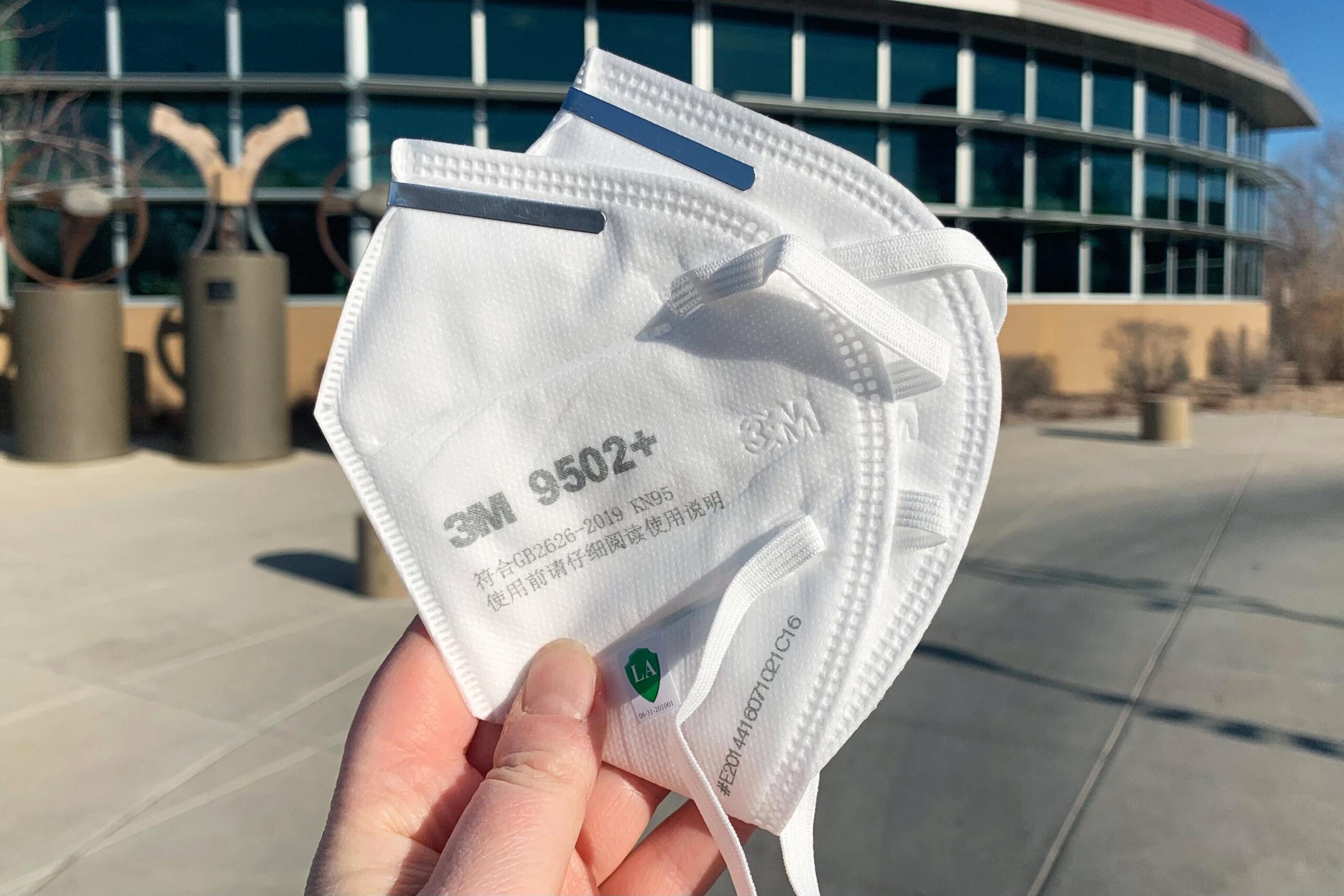
Masks will no longer be required at two major Colorado health systems, UCHealth and Denver Health, starting Wednesday, March 1.
UCHealth cited substantial decreases in COVID-19 and influenza cases as guiding its decision.
The system has been monitoring community transmission rates, hospitalization rates, as a surrogate for disease severity, wastewater surveillance for COVID-19, vaccination rates against COVID-19 as well as the trends for RSV and influenza, said Dr. Michelle Barron, the senior medical director of infection prevention and control for UCHealth.
“We feel that it is safe to no longer mandate masking,” Barron said. She noted the system will continue to follow its infection prevention guidelines. That means, specifically, if a patient is suspected or confirmed to have a transmissible infection, visitors and staff will need to follow precautions — like wearing a mask, a hospital gown and gloves.
Hospitalizations for confirmed coronavirus cases are relatively flat, at a relatively low to moderate level, according to the state’s dashboard. That’s a big change from a few months ago.
At the end of November, COVID-19 hospitalizations hit 440, their highest level since the winter of 2021-22. Then they dropped for about two months. For the last several weeks about 200 people have been hospitalized. As of last week, Colorado reported 186 patients in the hospital with COVID.
The virus continues going around. The seven day rate of positive tests, the positivity rate, is above 10 percent. Statewide data shows more utilities report a rising trend in COVID samples detected in wastewater. RSV and influenza hit Colorado hard late last year, causing a spike in hospitalizations, especially for children with RSV. But those trends improved over the last couple of months.
- With Colorado’s COVID-19 outlook improving, state drops crisis protocols for staffing, EMS
- Facing big staffing challenges, UCHealth launches new program to fund more education for workers
- ER doctors sound the alarm as Colorado’s hospital system shows cracks from the pressure of the omicron wave and staff shortages
- Medical research doesn’t serve everyone. This effort hopes to build one of the most diverse health databases ever.
Still, masks could return if conditions warrant, Barron said.
UCHealth will keep following the key metrics and will reinstitute masking mandates in specific areas, as needed, if cases rise significantly.
“Our goal, as always, is to ensure a safe health care environment for all of our patients and staff,” Barron said.
Denver Health says the move is aligned with other large health care institutions in the region.
“Denver Health’s COVID-19 hospitalization and ICU rates are very low, despite community transmission of the virus,” said chief medical officer Dr. Connie Savor Price. “Denver Health will continue to monitor this fluid situation.”
Asymptomatic patients, visitors and vaccinated staff at all Denver Health facilities may choose to mask but are no longer required to, it stated on its website.
Patients, visitors and staff with respiratory symptoms like a cough or runny nose and staff members who are unvaccinated against COVID-19, are still required to wear masks for infection prevention in Denver Health facilities.
Since the start of the pandemic in March 2020, Denver Health mandated masking in patient- and visitor-facing areas to protect patients, visitors and staff from COVID-19.
Community infection data shows it is now safe to lift masking mandates “since the burden of respiratory viruses has eased,” according to the press release on the Denver Health website.
“The success of COVID-19 vaccinations has helped us reach this point; staying up to date on your booster shots will help maintain our return to normal life,” it said.
Both systems say people are welcome to continue wearing masks in their facilities if they prefer.









